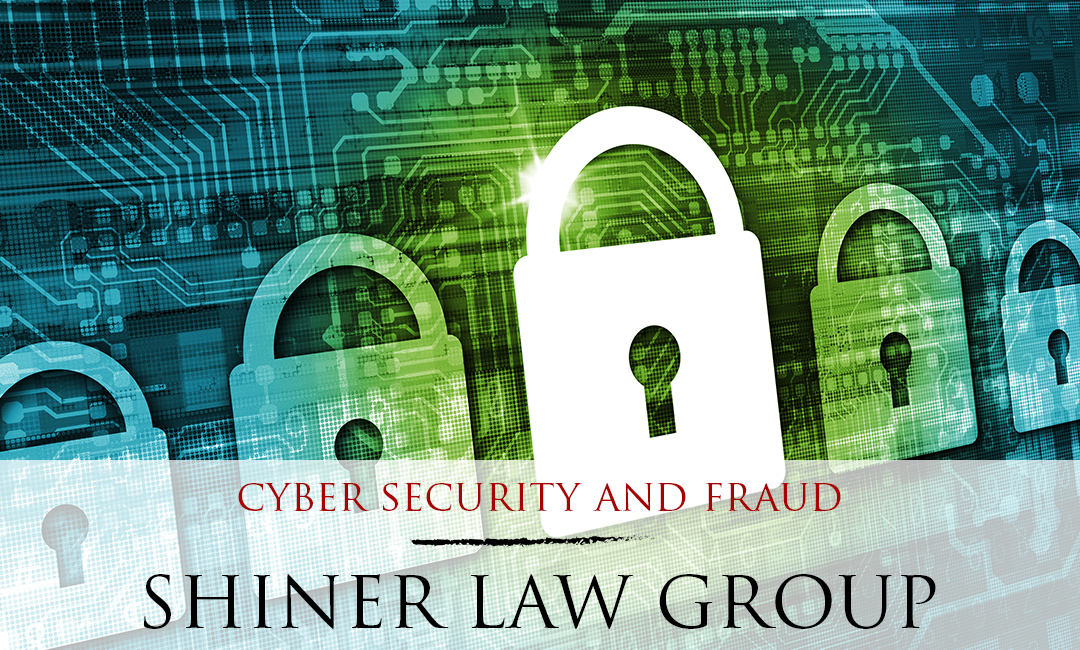Indeed, web connectivity has been helping businesses yield tons of opportunities to grow and tap profits. However, the only risk is that it also makes businesses vulnerable to cyber-attacks. And this is clearly evident from the exploding number of incidents related to cyber security.
Global businesses recorded nearly 23 million security breaches in the year 2011. The figure has since been escalating with a 12.8 percent annualized growth. This is quite alarming.
How to Protect My Business?
Many small business owners are not prepared to deal with cyber-crimes for a number of reasons. Most of them assume that cyber criminals will not attack them. Besides this, they don’t want to spend their entire IT budgets on preventive cyber security measures.
However, the truth of the matter is that small businesses are the most attractive targets for hackers because they know that these businesses don’t invest in cyber security.
Therefore, if you want to keep your business data safe and secure, then consider enforcing the following cyber security practices:
Have a Strong Privacy Policy in Place
If you’re collecting personal and private information from your customers, then you must implement a strong privacy policy for your business. Your customers need to know that their data will be protected. This is the only way to gain their trust and to show them that you are trying your level best to protect their privacy.
Invest in the Latest Security Software Programs
One of the most effective ways to defend your business against cyber-crimes is to enforce the best defenses against viruses, malware and other online threats. Invest in the latest security software programs, web browsers and operating systems. Also, make sure to turn on automatic updates. Automatic updates will enable the software program to automatically connect and get updated to defend against known risks.
Use Multiple Security Layers
To weed out phishing scams and malware that pose data security threats, it’s best to use multiple security layers like spam filters. These security layers will help keep your email safe and easy to use. Also employ a firewall to keep sensitive data in and criminals out.
Scan Your Devices
Make sure to scan all your USB and other devices before you attach them to your network. This simple practice will help keep your data safe and secure.
What to do if Your Business Data Has Been Compromised?
If your business encounters a data security breach then here’s what you need to do:
Notify Law Enforcement
If you think that your data security breach could result in identity theft, it is important that you notify the law enforcement body immediately. Call your local police department and report your situation without any delay.
Notify Individuals
Make sure to notify the clients whose personal information has been compromised. This will allow them to take the necessary steps to mitigate the misuse of their personal and confidential information.
Apart from taking these steps, the additional steps you need to take to recover from a security breach include the following:
Phase 1—Stop the Attack
Identifying a security breach is the first step towards recovery. This means that the faster you spot a breach, the better off your company will be. Keep in mind, it takes time for any attacker to break out of the system that they have compromised and get to the rest of the network.
At this stage, you need to contain the breach. This means that you need to cut off the access of the attacker by isolating the system that they have compromised. After the threat is contained, the next step is to eliminate it so that they cannot go further into the network.
Phase 2—Investigate the Attack
The next step is to investigate the attack and learn what happened and why. Also, you must investigate all the other affected systems for signs of further compromise as an attacker might have left a malware in your system.
For performing a forensic analysis, make sure to collect activity logs, which can help identify the underlying source of attack. And you can then eventually block future cyber attack attempts.
Phase 3—Notify Concerned Individuals
You must notify all your partners, customers and vendors via email or phone call about the security breach so that they can take adequate measures to protect themselves. In your phone message or email, make sure to mention the date of the breach, the kind of files that have been compromised and the steps that recipients should take to protect themselves. These notification messages can also play a vital role in protecting your company’s image and reputation after a breach.
Phase 4—Restore Assets on the Network
This largely depends on your business continuity and disaster recovery plan that you have in place. This is a plan that businesses set in advance to create fail safes so that if some assets are taken down, there are other means of keeping the business up and running.
Data or Security Breach—How Can a Lawyer Help?
Our lawyer can counsel your company through a wide range of potential data security issues. From minimizing data breaches to handling data security breaches, we can assist you with all your needs.
A dispute that involves a cyber-security incident can devolve into litigation, whether a B2B lawsuit or a data breach class action. Discuss your case with our lawyer today to determine the best course action for your problem.
Cyber security includes the controls, processes, and technologies that are created to protect data, networks, and systems from cyber attacks. No matter what type of business you are running, one of the most important parts of your business strategy should be enhancing online security to protect your business from a breach of security. Using the right system decreases the chances of cyber attacks and provides protection against unauthorized exploitation of your technologies, networks, systems, and data.
Cloud-Based vs. Local Server Based
A poor security server can result in a disastrous impact on your business. If your business experiences a security breach, you might lose crucial data that can lead to losses. Therefore, selecting the right server is an important decision you would have to make in order to enhance the cyber security of your business.
Many business owners have to make the decision between selecting a cloud-based server or a local server infrastructure. There are various factors to consider for selecting a server and the decision is mostly dependant on the nature of your business. A cloud-based server is typically more expensive as compared to a local server but the benefits it offers easily outweigh the costs. Again, the right server depends on your business. For instance, if you have an online business that mostly relies on web-based transactions then the uptime is a significant factor for the ease of your customers. In this scenario, a web-based server would be more reliable.
Let’s have a look at the pro and cons of both servers:
Local Server
Following are the benefits of opting for a local server:
- Offers a physical control of your entire backup data.
- Stores important data in-house without revealing it to a third party.
- There is no need to depend on the internet in order to access your data.
- More cost-effective for medium to small companies.
Following are some cons of a local-based server:
- Capital investment is required for infrastructure and hardware.
- Requires adequate office space for instance, a closet, server room, or rack to store, as well as additional IT support.
- Might be susceptible to loss of data in case of a disaster because of its location and your business might lose important data in case on an emergency.
- Doesn’t have guaranteed recovery time or uptime.
Cloud-Based Server
Following are the benefits of opting for a cloud-based server:
- Doesn’t require capital expenses or onsite hardware.
- Suitable for small to medium companies that might quickly outgrow their data storage.
- More storage can be added as per the needs of the company. On-demand solutions are also available.
- Restore and backup can be done from any location using a smartphone, tablet or computer.
- Data can be stored and backed up on the cloud server at a minimum of 15 minutes intervals, which minimizes the risk of data loss in emergency situations.
Following are some cons of cloud-based server:
- The data recovery cost can outweigh the benefits, especially for companies that aren’t dependant on instant recovery and uptime.
- All companies have a restriction on data storage on the cloud because of cost and storage availability.
- If there is a problem with the internet, the stored data can’t be accessed.
- Full recovery of data can be time-consuming and might also affect the systems.
Both servers have their own set of advantages and disadvantages, and the right server depends on the needs and requirements of the business.
Issues And Liability: Who Is Responsible For Your Data?
Protecting the important data of your company is value proposition since operational security, confidential business, and trade secrets are dependent on it. Data theft or breach means your business can face a major dip in its market share, stock price, and you might end up facing liability issues with your customers.
So, the important question is: who exactly is responsible for data security and who gets the blame for a security breach?
Who is Responsible for Cyber Security?
When hackers break into a company’s system, they typically prefer to keep a low profile and stay for a long duration. Their main aim is to steal corporate information that they can sell. These data and security breaches are often undetected, sometimes even for months!
Unfortunately, companies typically treat a cyber security as just a technical issue for the IT department to handle. This makes them more vulnerable to such attacks and losing data.
It is important to understand that cyber security includes technical expertise, operational configurations, human resources policies and practices, and legal issues. This means almost all of the management shares the responsibility of cyber security and yet in many companies they aren’t even aware about it. The cyber security of a business involves identifying what information to protect, how to protect it and where to store it. This also includes establishing policies and guidelines that don’t interfere with the creativity and innovation of a business.
Businesses should understand that the protection of important information means protecting the corporate value. This is the main responsibility of the executive management and the board.
Who is Legally Responsible for a Breach?
There isn’t any existing federal mandate covering data breaches, especially that affecting personal information. The states, however, require all companies to immediately inform their clients or customers in case a data breach occurs and their information is compromised.
If there has been a data breach due to a cyber attack in a proprietary network and data center of the data owner, then the owner is liable. Federal and state data privacy laws don’t impose civil liabilities in case of a cyber attack. The imposed liability usually occurs if the below mentioned situation exists:
- The company failed to employ safeguards that have been made mandatory by reasonable or statute security measures.
- The company failed to mitigate or remedy damages when the security breach happened.
- The company failed to notify the individuals affected as per the data breach notification statute of a state. This can result in liability for civil penalties that has been implemented by a state enforcement agency or state attorney general.
It is important that the negligent behavior of the company is proven in order to impose liability. Nevertheless, a liability might also exist if service agreements or contractual indemnification are in effect between businesses or towards the affected individual.
No matter what the situation is, it is essential to get a business litigation lawyer so that your business and your assets are protected. Contact Shiner Law Group and get a free case evaluation of your case by our experienced business litigation lawyers.










